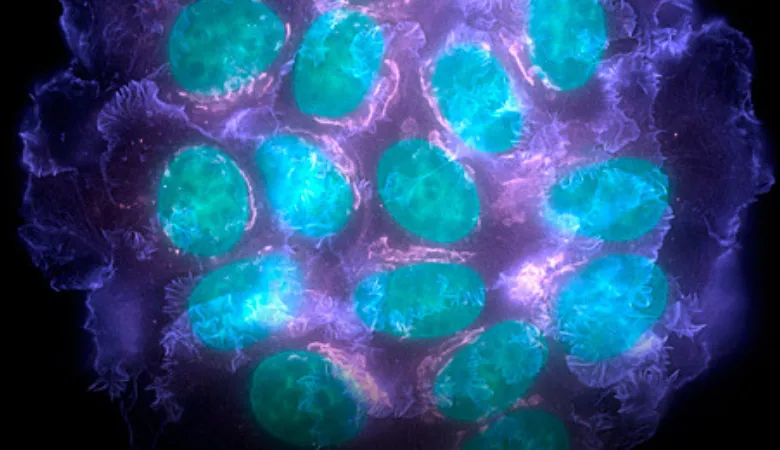CART for haematological cancers is a game changing new modality with the potential for cure in the face of refractory diseases.
Dr Sophie Papa, Senior Lecturer and Honorary Consultant Medical Oncologist
19 March 2018
King's researchers publish paper in Nature Communications
Researchers from the Cancer Immunology and Immunotherapy Programme in the School of Cancer & Pharmaceutical Sciences have been published in Nature Communications.

The paper describes an approach to accelerating the pre- and clinical-development (testing process) of new Chimeric antigen receptor T cell (CART) approaches with focus on a tool kit for imaging CART cells which involves the detection and analysis of cells. CART cell therapy is an emerging treatment for cancer that has attracted multi-billion dollar investments in recent months, with all eyes on the predicted breakthrough in solid tumour therapy.
The potential impact of this clinically compliant tool kit is significant, as it could enable translational CART researchers to rapidly develop successful candidates and better understand their behaviour enabling safer and faster clinical development for the benefit of cancer patients.
King’s researchers have focused their attention on developing a robust imaging approach that allows repeated imaging of the behaviour of CART cells after they have been administered as a treatment.
The CART cells retain the reporter gene as well as the CART receptor for the duration of their life and they pass the genes onto their daughter cells. This means CART cells can potentially be imaged and tracked as long as they are present.
The paper ‘Clinically compliant spatial and temporal imaging of chimeric antigen receptor T-cells’ was published today on Nature Communications
